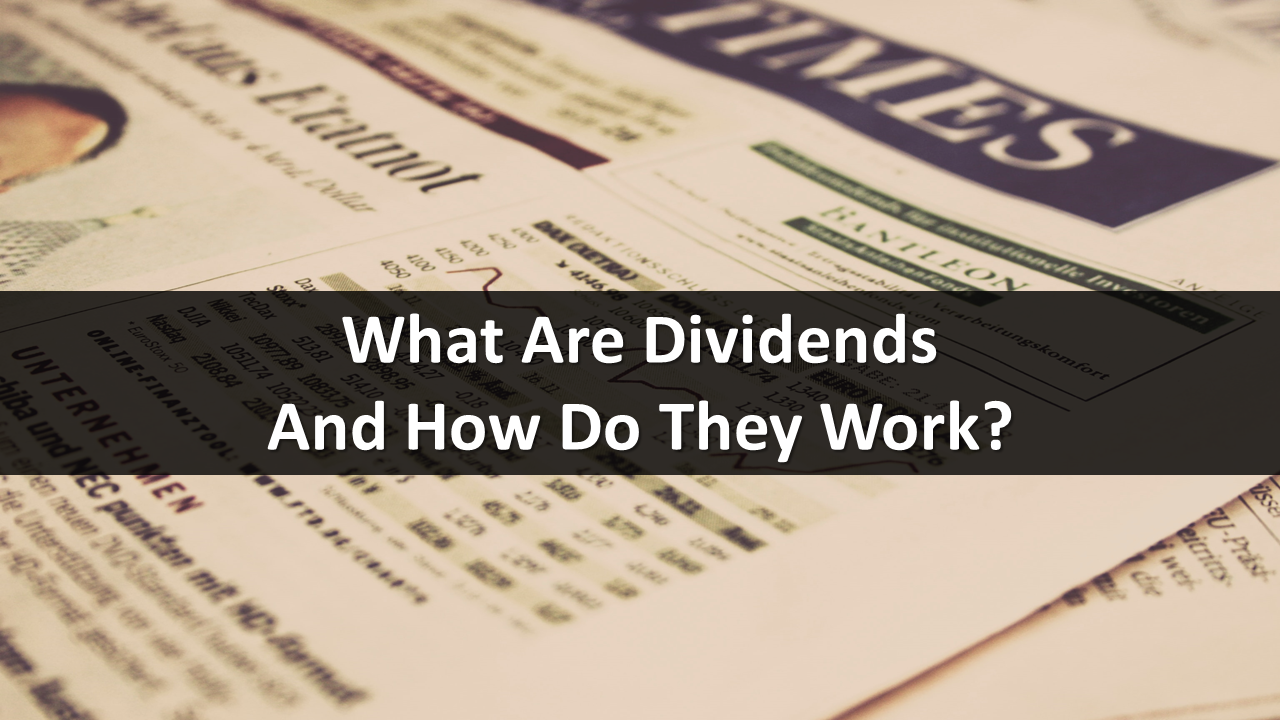What Are Dividends And How Do They Work?

What Is A Dividend?
A dividend is a payment that shareholders receive for their equity investment, and it usually represents part of the company's earnings.
To make a practical example, let's say that one of your friends wants to open a new restaurant chain but doesn't have the funds to do that. You believe that it could be a great business, so you decide to help him by investing in his project and becoming a shareholder.
The company generates a significant profit, so your friend wants to reward you and the other shareholders for your investment, and he thinks that one way to do that could be to share the company's net profit with you.
Once you and the other shareholders have approved the decision with your voting rights, you will receive part of the company's earnings through a dividend.
Why Do Companies Pay A Dividend? And Why Some Don't?
While deciding how to use the company's financial resources, management usually opts for what provides investors the greater return. If they use the capital to pay a dividend and reward shareholders, they can't use it to invest and grow the business.
So when it comes to choosing whether to pay a dividend, much depends on the stage of growth of the company:
- Typically, some companies don't pay a dividend because they are in the early stage of growth, so they need the funds to invest and grow the business.
- At the same time, other companies regularly pay dividends because they are stable corporations in the maturity stage of the business life cycle. They are growing slowly and have the financial strength to grow the business and, at the same time, distribute part of their earnings to shareholders.
Which is better for you as an investor? If you invest to accumulate capital for the future and don't need your investment to generate a yearly income, it really doesn't matter whether the company pays a dividend.
By investing in the stock market, you realize a return on your investment with dividends or capital appreciation. In the first case, you receive a payment for holding a stock, while in the second, the profit comes from your assets' price increase.
If a firm uses the funds to invest and grow the business, you won't receive any regular payment. Still, you will probably realize a return thanks to capital appreciation since your stock price will likely grow with the company.
How Often Are Dividends Paid?
There isn't a specific rule for that, but most companies pay dividends every quarter (in line with earnings reports) while some pay it annually, semi-annually (twice a year), or monthly.
The dividend frequency depends in particular from the type of company. For some companies, such as REITs (Real Estate Investment Trust), it's easy to distribute a monthly dividend because they collect payment from their customers monthly. There are other sectors, such as consumer discretionary, where revenue are not so regular, so companies can't distribute a monthly dividend.
If you want to find out the dividend frequency of a particular stock, you can use the Finbox Data Explorer,
Disclaimer: As of this writing, I did not hold a position in any of the aforementioned securities and this is not a buy or sell recommendation on any security mentioned. I also have no ...
more


